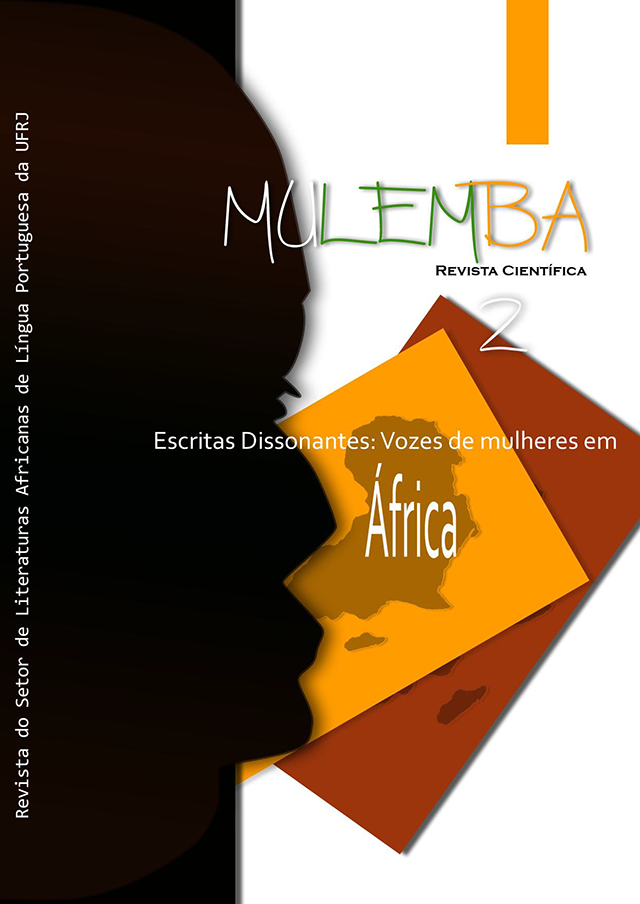“NÃO SOU MESMO UMA FEMINISTA?” A POLÍTICA DO CORPO EM O ALEGRE CANTO DA PERDIZ, DE PAULINA CHIZIANE
DOI:
https://doi.org/10.35520/mulemba.2010.v2n2a4688Palabras clave:
Literaturas Africanas de Expressão Portuguesa, Literatura Moçambicana Estudos de Gênero, Feminismo.Resumen
Este artigo propõe uma leitura do romance de Paulina Chiziane, O Alegre Canto da Perdiz (2008), a partir da conflitualidade entre classe, gênero e raça, enquanto conceitos social e culturalmente construídos. Questionarei a possibilidade de este romance ser a nova expressão de uma écriture féminine (CIXOUS, 1975) em Moçambique, defendendo que: 1. existe uma abordagem intencional ao conceito de “falocentrismo” (DERRIDA, 1993) através de uma (re)escrita do corpo feminino; 2. Chiziane desenvolve o jogo entre uma concepção particular e uma concepção universal (WITTIG, 1983) do conceito “mulher”; 3. é atribuído um significado simbólico à condição de mãe (KRISTEVA, 1980), que se transforma numa fonte subliminar de opressão; 4. é possível perceber a presença de uma expressão lésbica de amor, já que o texto dá forma ao conflito entre a rendição a uma heterossexualidade imposta (“compulsory heterosexuality”. RICH, 1980) e a necessidade de resistir e lutar contra a opressão da mulher que daí resulta.
PALAVRAS-CHAVE: Literaturas Africanas de Expressão Portuguesa; Literatura Moçambicana Estudos de Gênero; Feminismo.
Descargas
Descargas
Publicado
Número
Sección
Licencia
Los autores que publican en esta revista concuerdan con los siguientes términos:
- Los autores mantienen los derechos autorales y conceden a la revista el derecho de primera publicación, con el trabajo simultáneamente licenciado bajo la Licencia Creative Commons Attribution que permite compartir el trabajo con reconocimiento de la autoría y publicación inicial en esta revista.
- Los autores tienen autorización para asumir contratos adicionales separadamente, para distribución no exclusiva de la versión del trabajo publicada en esta revista (ej.: publicar en repositorio institucional o como capítulo de libro), con reconocimiento de autoría y publicación inicial en esta revista.
- Los autores tienen permiso y son estimulados a publicar y distribuir su trabajo online (ej.: en repositorios institucionales o en su página personal) en cualquier momento antes o durante el proceso editorial, ya que eso puede generar alteraciones productivas, así como aumentar el impacto y la citación del trabajo publicado (Vea El Efecto del Acceso Libre).

